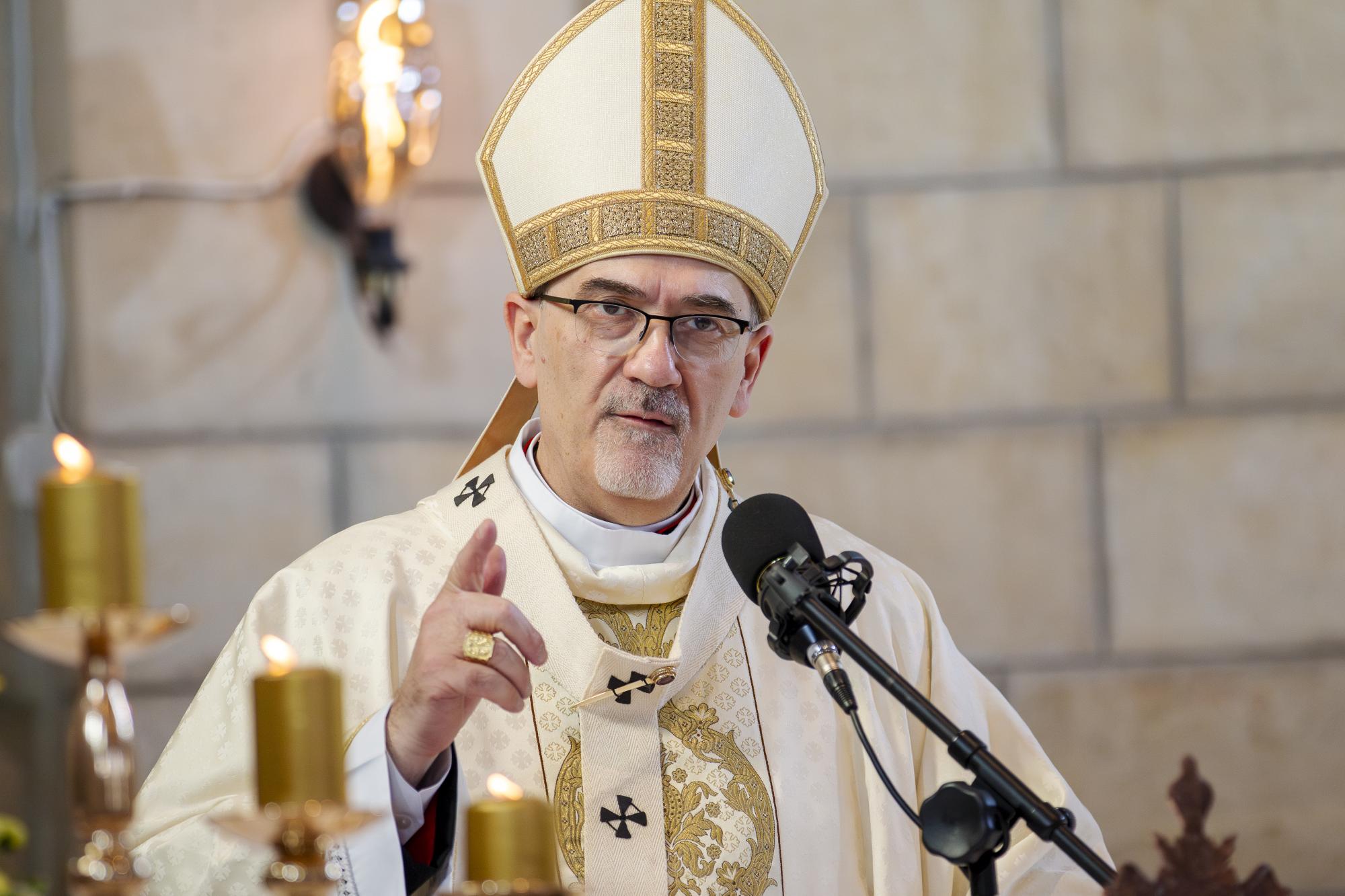
Analytical Reading of the Patriarch of Jerusalem’s Message
Prepared by Sanad Sahelia
In his latest pastoral letter to the faithful of the Latin Patriarchate of Jerusalem, Cardinal Pierbattista Pizzaballa, Latin Patriarch of Jerusalem, offered a profound reflection on the Palestinian reality, combining the Christian spiritual dimension with the social and political context, at a critical moment as the Holy Land endures the weight of war.
Pizzaballa noted that reports of a possible agreement to end the war in Gaza may represent “a new beginning for everyone, not only Israelis and Palestinians, but also the whole world.” At the same time, he emphasized that “the cessation of hostilities is only the first, necessary and indispensable, step on a treacherous path,” adding that “The end of war does not necessarily mark the beginning of peace.”
The message went beyond spiritual analysis to depict the harsh daily suffering in Gaza, where civilians face “repeated massacres of civilians, starvation, repeated displacement, limited access to hospitals and medical care, lack of hygiene, without forgetting those who are being held against their will.” Meanwhile, Palestinians in the West Bank endure an increasingly deteriorating situation, especially in small villages “which are increasingly surrounded and suffocated by settler attacks, without sufficient protection from the security authorities.”
The Cardinal expressed anticipation for the joy of families affected by the conflict, saying: “We await the moment to rejoice for the families of the hostages, who will finally be able to embrace their loved ones. We hope the same for Palestinian families, who will be able to embrace those returning from prison.” He stressed that believers must be a voice of hope, resisting “the logic of exclusion or rejection of others,” and affirmed that the Church must remain steadfast in faith and in its on-the-ground commitment despite the difficulties of reality.
In a deeper political reflection, the Cardinal referred to the plan announced by U.S. President Donald Trump on September 29, 2025, which called for an immediate ceasefire, the entry of humanitarian aid, a prisoner exchange, and the transfer of Gaza’s administration to an independent Palestinian authority. The plan also included the deployment of a temporary international stabilization force and a clause on the disarmament of Hamas. The movement responded on October 3, expressing appreciation for the humanitarian and international efforts and its readiness to negotiate through mediators, but rejected the disarmament clause, affirming that the protection of the population and their self-governance of the Strip were non-negotiable. This divergence underscores the mounting pressure on the ground and the urgent need for concrete steps to rebuild trust and pursue justice, in line with the Cardinal’s call for hope and collective action.
On the spiritual level, Pizzaballa affirmed that “every life lost, every wound inflicted, every hunger endured remains a scandal in God’s eyes,” urging the faithful to confront the logic of force and violence that dominates politics and institutions, and to remain committed to sowing “seeds of life despite pain.” He recalled the image of the empty tomb as the source of Christian hope, affirming that suffering will not last forever and that any truce must evolve into a long-term commitment to rebuild trust and strengthen justice among all parties affected by the conflict.
The letter also highlights the psychological and social dimensions of war, where ongoing uncertainty breeds mistrust and disorientation, while restrictions on movement and access to basic services persist. Yet, Palestinian civil society continues to resist the logic of domination and violence, expressing its rejection of oppression. Faith and collective work, the Cardinal noted, remain the true driving forces for tangible change within society.
The message interweaves spirituality with social and political compassion, stressing that the Church is not offering a political analysis but rather a spiritual vision that helps the faithful remain rooted in the Gospel and face division, hatred, and revenge. The Cardinal explained that “Confrontation and settling of scores do not belong to us, neither in logic nor in language,” adding that the message of Jesus is founded on love and forgiveness, not vengeance. True human confrontation, he said, begins with peaceful initiatives rooted in steadfast faith and enduring hope.
The Cardinal reminded his readers that the path ahead for Palestinians is long, and that patience and collective effort are the only way to face the aftermath of war. He called for perseverance in love, the pursuit of justice, reconciliation, and forgiveness, anchored in the promise of the Resurrection: “Christ’s empty tomb - at which, more than ever in these past two years, our hearts have paused in anticipation of resurrection - assures us that pain will not last forever, that waiting will not be in vain, and that the tears watering the desert will make the Easter garden bloom.”
He concluded his message by inviting the faithful to participate in a day of fasting and prayer for peace on October 11, in response to the appeal of Pope Leo XIV. The initiative includes communal moments of prayer such as the Rosary, Eucharistic adoration, and the Liturgy of the Word, so that the Church may remain a witness to hope amid suffering.
The Cardinal stressed that Christian hope is the key to both collective and spiritual renewal, and that the faithful’s commitment to new initiatives rooted in openness, trust, and hope can help rebuild bonds among people and reaffirm the Church’s presence as a living witness of faith and love in a land still torn by conflict.
